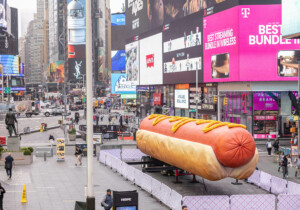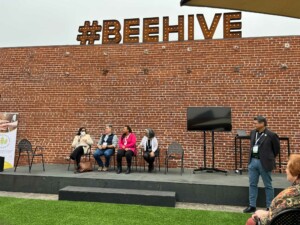The New York City Council has officially voted to outlaw natural gas connections to new buildings, putting final approval in the hands of outgoing Mayor Bill de Blasio, who’s expected to sign the measure into law before the end of his final term this year.
Introduction 2317 was approved yesterday, December 15, as just one component of the city’s quest to go carbon-neutral by 2050, with New York’s buildings contributing a whopping 70 percent of all greenhouse gas emissions. The city’s carbon emissions dropped precipitously under former Mayor Michael Bloomberg thanks to the retrofitting of older buildings with more efficient windows and natural gas hookups, and the move to mandate electric heating and stoves (when paired with renewably generated power) is expected to help cut that even further.
The ban officially goes into effect on January 1, 2024, for new buildings shorter than seven stories, with exemptions for residential projects with at least half of their units set aside for affordable housing—then they have until Dec. 31, 2025, to file their construction documents. Towers seven stories and up will have until 2027 before new projects will be required to make the switch, and will similarly have an extra year if they include affordable housing. Laundromats, hospitals, and commercial kitchens will all be exempt.
According to a 2019 survey by the U.S. Energy Information Administration, New York State is the fifth-largest petroleum consumer and sixth-largest natural gas consumer in the U.S.—thinktank RMI estimated that the new bill will prevent the release of 2.1 million tons of carbon dioxide by 2040, equivalent to the emission produced by about 450,000 cars annually. RMI also pointed out that New Yorkers stand to save hundreds of millions in taxes thanks to the lower costs of building all-electric towers from the get-go. The group’s “net carbon saved” estimates only go out to 2040 as that’s the year the state has pledged to switch to 100 percent renewable or nuclear-generated electricity.
Meanwhile, in good news for bird proponents, the City Council also took the opportunity to pass Introduction 274-A:
“Int. 274-A, sponsored by Council Member Helen Rosenthal, will require that all non-essential outdoor lighting in buildings owned by the City, or in leased buildings where the City is the only tenant, be turned off between 11:00 p.m. and 6:00 a.m. during peak avian migration periods. Proposed Int. No. 274-A would also require the City to use its best efforts to include provisions in lease negotiations to require this non-essential outdoor lighting be turned off between the hours of 11:00 p.m. and 6:00 a.m. during peak aviation migration periods for buildings where the City is not the only tenant.”
New York has frequently come under fire for unnecessary nighttime illumination as the city sits in the path of major migratory routes; birds attempting to navigate at night are often confused and in some cases, it leads to their deaths.











